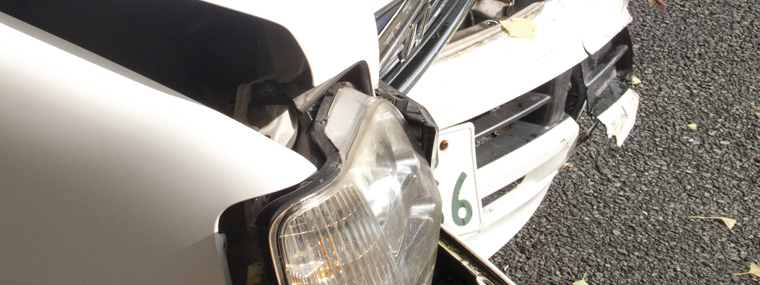
The Importance of Workers’ Compensation Insurance and Contractor’s Pollution Liability Insurance
By Bonnie Bradburn and Jessi Price / Published June 2018

Editor’s Note: This is part three of several articles that are covering different aspects of needed insurance. The types of insurance covered in part three are Workers’ Compensation Policy and Contractor’s Pollution Liability Policy.
Part one covered Commercial General Liability Policy and Commercial Umbrella Liability Policy and can be accessed at www.cleanertimes.com/magazine/cleaner-times-articles-2/commercial-general-liability-insurance.
Part two covered Business Personal Property and Contents Insurance, Commercial Inland Marine Insurance, Commercial Auto Policy, and Garage-keepers Insurance and can be accessed at www.cleanertimes.com/magazine/cleaner-times-articles-2/more-insurance-needs.
In a future issue, we will finish the series by covering Certificates of Insurance, Janitorial Service Bond, and License & Permit Bonds.
Workers’ Compensation Insurance
Workers’ compensation insurance provides benefits to employees for work-related injuries or illnesses including medical care, wages from lost work time, and more. Workers’ compensation insurance provides a deceased worker’s family with a financial benefit as well. If a worker’s family decides to sue the company, it can also help with the related legal fees.
Workers’ compensation insurance can help protect your business and employees in events such as these:
- An employee slips on ice and injures himself while walking up the stairs to the office, requiring an emergency room visit and weeks of recovery time.
- An employee returning to the office from visiting a client is injured in a car accident and requires hospitalization.
With workers’ compensation insurance, your insurance carrier will help pay for the medical expenses needed to treat these job-related injuries and illnesses. Workers’ compensation insurance will also help employees keep their income while they take time off to recover.
In most states, the cost of workers’ compensation insurance can vary between insurance companies as they compete for customers. Despite the variability, all insurance companies base workers’ compensation premiums on the amount of payroll an employer has as well as how dangerous the work is. Some larger employers will be impacted by their past claims experience, with premium credits for low claim experience and increased premiums for those with more claims.
The cost of workers’ compensation insurance is calculated based on a rate charged per $100 of payroll. Rates vary by state as well as being based on the type of work employees are engaged in and the businesses claims history. The payroll figure is based on an estimate of annual payroll. The policy will be audited for true payroll at the end of that policy term. Each state controls their workers’ compensation rates
and rules. Workers’ compensation is required by law in most states, and each state’s requirements can vary.
Contractor’s Pollution Liability (CPL)
Contractor’s pollution liability is a contractor-based policy, offered on a claims-made or occurrence basis, that provides third-party coverage for bodily injury, property damage, defense, and cleanup as a result of pollution conditions (sudden/accidental and gradual) arising from contracting operations performed by or on behalf of the contractor.
CPL is available to any type of contractor performing operations or conducting work. From environmental or remedial contractors to general and specialty trades, CPL has become a viable financing option for environmental loss, providing insurance for large or even catastrophic loss scenarios at a reasonable premium.
Market appetite remains strong with several core risk classes:
- General Contractors
- Trade Contractors
- Artisans or specialty trades (Power washers)
In addition to the basic form, there are many coverage considerations that should be discussed, which can be added via endorsement to the CPL form.
Pollution liability coverage used to be included in most business insurance policies, but that changed in the 1970s with the emergence of many expensive asbestos claims. Now this coverage is largely excluded and must be purchased separately. Pollution claims are not limited to large manufacturers. These claims can be filed by state and local governments and other businesses or landlords. Do not allow a pollution claim to bankrupt your business; protect it with pollution insurance.
What is Pollution Insurance?
Pollution insurance is a type of coverage created specifically to manage the cost associated with pollution clean-up, as well as to cover liability claims for pollution-related injuries, illnesses, or deaths. Policies cover any type of small-scale pollution that causes contamination of soil, groundwater, or property. They also provide coverage for air-borne contaminants.
Who Needs Pollution Insurance?
When many people think of pollution insurance, they picture large factories with billowing smokestacks, but many small businesses, including the power washing industry, can benefit from this coverage. Is your water runoff from washing that building, tractor trailers, houses, or flatwork going into the ground or the nearby sewer system? Contract requirements also have played a significant role. While a decade ago contractor’s pollution liability was not a regular part of the insurance specification for construction projects, that is not the case today. Pollution coverage has also largely been driven by project requirements, which is now a frequent prerequisite, as owners and risk managers seek to ensure they are protected against environmental risks. Even Wal-Mart requires pollution liability for the power washers to wash their sidewalks.
What Does Pollution Insurance Cover?
Pollution liability insurance provides coverage for any claims brought against your company that are related to pollution of property that causes harmful effects to people or property. Damage awards for these claims can be extremely costly, so having this sort of insurance can protect your business from severe financial challenges or even bankruptcy. Most coverage options come standard with a pollution insurance policy, but some may require you to purchase additional endorsements to get full coverage. Be sure to read the policy details well before selecting a provider. You can expect pollution insurance to cover legal defense fees, clean-up efforts, and operations. If your business uses chemicals in the course of its operations, you will want to be sure to have coverage for accidents or oversights that may cause pollution.
What is Contractor’s Pollution Liability Insurance?
Contractors work on other people’s property. If work that they do now uses materials that are later found to be hazardous, the contractors are liable for damages and clean-up. Contractor’s pollution liability insurance is designed to protect contractors from these unmanageable losses.
Is Pollution Insurance Coverage Expensive?
The cost of a pollution liability insurance policy will differ significantly from one business to the next. A business that uses a lot of hazardous chemicals will have higher premiums than one that uses only a few. Some factors that influence costs include the type of business being insured, the type of chemicals and hazardous materials used, and the disposal method of hazardous wastes. The only way to find out how much you can expect to pay to insure your particular business is to review an actual pollution insurance quote with your insurance agent.





